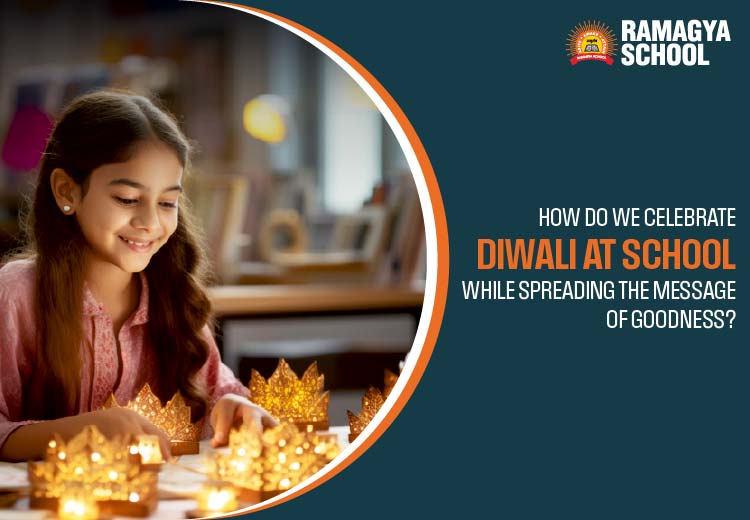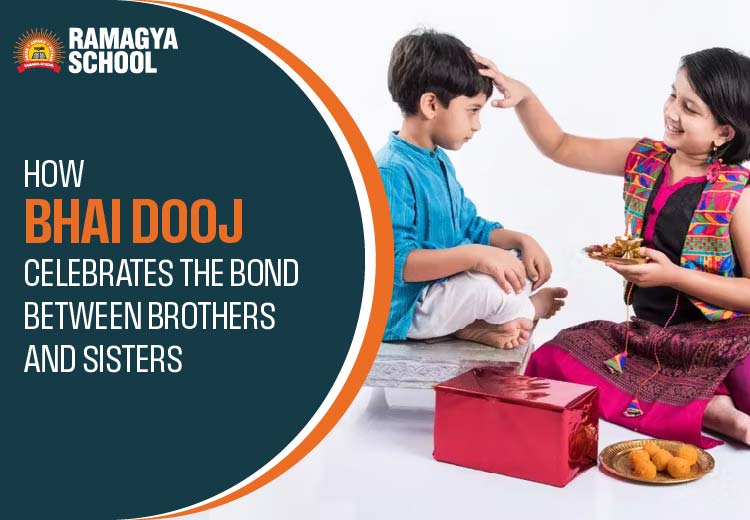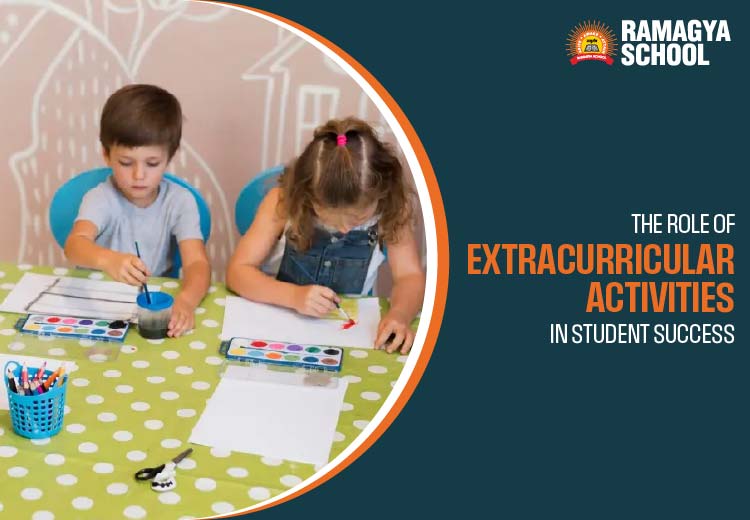Diwali is among the most popular festivals in India. It is a festival of lights, colors, joy and love for one another. In the school’s celebrations, Diwali isn’t just about sweets and fun; it also serves as a means to teach children about the importance of kindness, goodness and responsibility. By combining celebrations with learning, schools can assist students understand the real meaning of Diwali.
Also read: Top Fun Diwali Activities For Kids: Celebrate with Creativity and Joy
Diwali Celebration in School
The Diwali celebration at school is packed with excitement for the children. Students and teachers gather to decorate their classrooms, create rangolis, and prepare for small performances. Kids participate in activities that make the celebration enjoyable and meaningful. Schools can celebrate Diwali in a variety of ways. Some of it are:
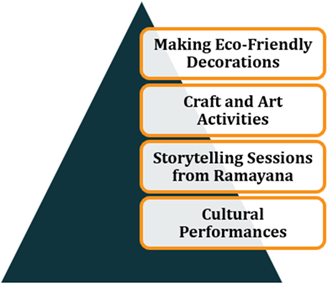
- Making Eco-Friendly Decorations: Students can make diyas, lanterns, and rangolis with natural colors, and recycled materials.
- Craft and Art Activities: Children are taught how to create greeting cards and other decorations that teach collaboration and creativity.
- Storytelling Sessions from Ramayana: Teachers narrate the story of Lord Rama, Sita, Lakshman, and Hanuman. Children learn how Rama returned to Ayodhya after 14 years in exile and defeated Ravana. This story teaches the victory of good over evil, which is the heart of Diwali.
- Cultural Performances: Children take part in drama, dance, and music performances that show the festive spirit and retell stories from Ramayana in easy, enjoyable ways.
Through these activities, kids not only have fun celebrating the festival but also learn about the moral lessons and values of Diwali.
Promoting Eco-Friendly Diwali
An important part of how to celebrate Diwali in schools is educating kids to be responsible towards the environment. Schools can promote environmentally friendly Diwali practices, such as:
- Using Natural Colors for Rangoli: Avoiding the use of chemical powders that could be harmful to the environment and for the street animals too.
- Decorating with Recycled Materials: Use cloth, paper and other items that can be reused. All of it should be environment friendly.
- Reducing Firecrackers: Concentrate on the lights and decorations, instead of loud fireworks. This will also help in reducing the fear of street animals all because of the loud noises caused by the firecrackers.
- Planting Trees: Some schools start tree-planting activities during Diwali to teach sustainability.
This will teach children that expressing love for the environment is just the same as a celebration filled with joy.
How to Celebrate Diwali at Home With the Same Spirit
Schools typically encourage students to take lessons from their school’s celebrations and use these at home. Some suggestions for how you can celebrate Diwali with family members include:
- Making rangolis using natural colors and flowers.
- Decorate your home with eco-friendly lighting and lanterns.
- Sharing gifts and sweets with your neighbors and family.
- Visit the school Diwali Mela to enjoy and spend quality time with your family, friends and neighbors as well.
- You can donate food, sweets and clothes to those who are in need of it.
- Buy from local vendors instead of big shopkeepers because festivals are for them too.
- Take part in Diwali pooja with your family to get the blessings of Gods.
Activities That Teach Goodness
The celebration of Diwali at school isn’t only about decorations, it is also about teaching the importance of values. Schools offer activities that help children understand the message of Diwali and spread goodness:
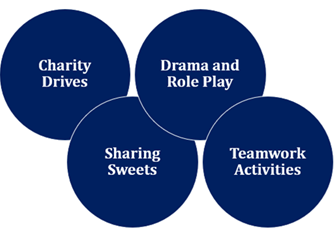
- Charity Drives: Collecting food items, clothes, or other small items for those who are in need.
- Sharing Sweets: Children learn the joy of giving and sharing rather than just receiving.
- Drama and Role Play: Performing short plays based on the epic tale of Ramayana such as Rama defeating Ravana, teaches children lessons about courage, honesty, and righteousness.
- Teamwork Activities: Making group decorations or rangolis teaches cooperation and respect.
Through these activities, kids learn the fact that Diwali is about helping others, respecting tradition and being generous.
How Schools Make Diwali Special
Schools organize diwali celebrations in schools in a way that is fun and learning. Here are some ideas for schools to can make it unique:
- Decorating Classrooms and Corridors: Students make use of lanterns, diyas and floral arrangements to make a festive ambience.
- Organizing Competitions: Rangoli, drawing, and competitions for crafts encourage children to showcase their talents and also enhance their skills.
- Cultural Programs: Dance, singing and drama performances will bring the school community closer.
- Storytelling Workshops on Ramayana: Children take part in story-telling sessions to learn the importance of goodness, honesty and generosity.
- Workshops on Eco-Friendly Practices: Kids learn practical ways to celebrate eco-friendly Diwali.
All these efforts teach children that festivals are not only for enjoyment but also for learning, sharing, and spreading positivity.
Conclusion
Diwali is a holiday that brings joy, light and education into the lives of children. By planning the diwali celebrations in schools with care, with a focus on green practices, fun and teaching the value of kindness, children can experience the festival in a meaningful manner. Incorporating stories from the Ramayana helps children to understand the significance of the festival and activities that encourage kindness and sharing can make it more memorable. Learning how to celebrate Diwali responsibly helps children develop into kind and thoughtful individuals, which makes the festival an unforgettable experience for all.
FAQs
Q1: Why is Diwali celebration important in school?
It helps children learn about traditions, values, working together, and spreading happiness while enjoying the festival.
Q2: How can children celebrate eco-friendly Diwali?
They can use natural colors, recycle materials, use lights instead of firecrackers, and plant trees.
Q3: How to celebrate diwali in school?
Schools can have rangoli competitions, craft workshops, storytelling from the Ramayana, dance, drama, and charity activities.
Q4: How can Diwali teach children goodness?
By sharing, helping others, and taking part in teamwork and creative activities, children learn kindness and social responsibility.

